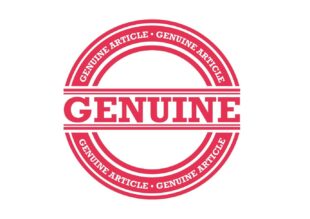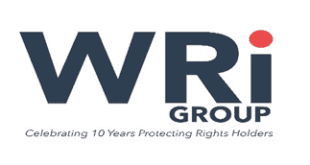
Recent reports from the OECD (Organisation for Economic Co-operation and Development) show that fake goods trading is on the increase. Dan Anthony looks at the reasons behind this rise and what is being done to combat these illegal practices.
In the past, intellectual property (IP) crime has comprised of counterfeiters painting fake masterpieces, printing false banknotes, and transforming bullion into ornamental Eiffel Towers. Now, thanks to the digital age and the rise of intangible business assets, something which was once a niche corner of an illegal network has been transformed into a far bigger problem.
Recent reports from the OECD (Organisation for Economic Co-operation and Development) indicate that trade in fake goods has continued to increase from an already high level of 3.3% in 2016. In this blog, I will outline the reasons behind this sustained rise and what is being done to combat these illegal practices.
Intangible but vulnerable
Over 80% of the value of UK companies trading on the stock market is deemed intangible. This includes trademarks, design registrations, copyright creations and patent-protected inventions. Although these assets can’t be stolen from a misplaced handbag or seized during a bank heist, they are still vulnerable.
Through the sale of counterfeit goods via rogue websites and the dissemination of unlicensed content, these vital assets are at risk of IP infringement.
A new breed
Along with Border Force and National Trading Standards officers, a new breed of independent investigators is being established. Their role is to crack down on these practices. They offer IP protection services to innovative companies whose commercial success makes them potential targets for infringement.
TM EYE
David McKelvey created TM Eye in 2007. He is the former Detective Chief Inspector of North and East London’s Criminal Investigation Department.
TM Eye is a specialist IP protection service that now represents some of the world’s largest and best-known brands.

The team operates internationally and is responsible for more prosecutions and convictions for trade mark offences than any other public or private law enforcement organisation in the UK. It has undertaken over 700 private criminal prosecutions and has a 100% conviction rate. 13% of TM Eye’s convictions receive custodial sentences.
The team’s workload is varied, and includes the seizing of truck loads of lethal, counterfeit pharmaceuticals in Mumbai, to busting online counterfeit goods networks here in the UK. The team has three major Crown Court trials coming up in Sheffield, Birmingham and London relating to their current operation. David told us:
“We’re currently tackling the largest organised criminal gang manufacturing and supplying fake tobacco products across the UK representing losses in the hundreds of millions.”
The investigation is ongoing.
SnapDragon
Rachel Jones is the founder and CEO of SnapDragon Monitoring, who are online brand protection specialists. SnapDragon works with brands around the world to enforce intellectual property rights online removing copycat and fake listings as well as illicit domains.
In 2020 SnapDragon was awarded the Queen's Award for Enterprise for innovation in recognition of SnapDragon’s ground-breaking online IP infringement monitoring software. It’s an achievement of which Rachel and her team are hugely proud.

Rachel’s experience of IP crime is that of a creative entrepreneur, and her passion for what she does stems from her own experience:
“I absolutely know what any creator/inventor goes through when finding a fake of a product into which you have poured your heart and soul. I've created, developed, manufactured and supplied a product into global markets, which was then counterfeited.”
It was this very personal story which has driven SnapDragon's development of affordable, effective software. The software enables brands of any size to identify IP-infringing products for removal from ecommerce and social media sites around the world.
WRi Group
Graham Mogg has close connections with the Intellectual Property Office having been instrumental in creating and leading the IPO and National Trading Standards e-Crime Intelligence hubs. He was inspired to create the WRi Group in 2011.
Graham’s past experience as a police officer and across the IP environment gives the WRi Group big picture credentials.
As Graham says, "we’re not just here to make money; we’re here to protect consumers and businesses and have contributed to projects that have allowed that to happen."
Graham has been at the forefront of many of the UK's most successful collaborative enforcement actions. The WRi Group sponsors the Real Deal initiative, supporting local authorities and market operators in the fight against IP crime.
The team specialises in bespoke brand protection, investigation and civil recovery services for major clients. The WRi Group’s academy closes the loop between public and private sector, training trading standards officers through its academy.
Graham shared his views in the Journal of Trading Standards: “we’re very proud of our business vision of a world without counterfeit goods, and we are committed to working towards that goal. As individuals, we all work together for a common cause to try to reduce the availability of counterfeit goods and illicit trade."
The IPO registers, grants, curates and arbitrates IP rights. It also helps enforce them. Close links between private and public IP enforcement services characterise the UK’s approach to IP protection. The IPO’s Intelligence Hub and its commitment to tackle IP crime provide the context where distinctive, creative, professionals can share best practice and develop the interventions we need to finish fakery.
To keep in touch, sign up to email updates from this blog, or follow us on Twitter.

3 comments
Comment by Alicia owens12 posted on
Counterfeiting is undeniably a significant business. It's a form of organized crime that harms legitimate enterprises, particularly small firms, as well as consumers' health and safety, economies, and national security. It also aims to deprive the government of revenue while putting a financial burden on taxpayers. Anti-counterfeiting legislation establishes procedures for greater surveillance, reducing the risk of counterfeit goods.
Comment by Clive Bonny posted on
Good to see more IP fraud specialists taking action. I'd also like to see fewer SME's coming to me with Cease and Desist letters caused by their failure to check IP databases. Latest EUIPO stats show in in 3 small enterprises suffer infringement issues. All below the public radar as claims are settled out of court, but nevertheless a major problem
Comment by Bahram posted on
Thank you very much dear. I have to thinking but you are right.
Bahram pourmadi kasmaei